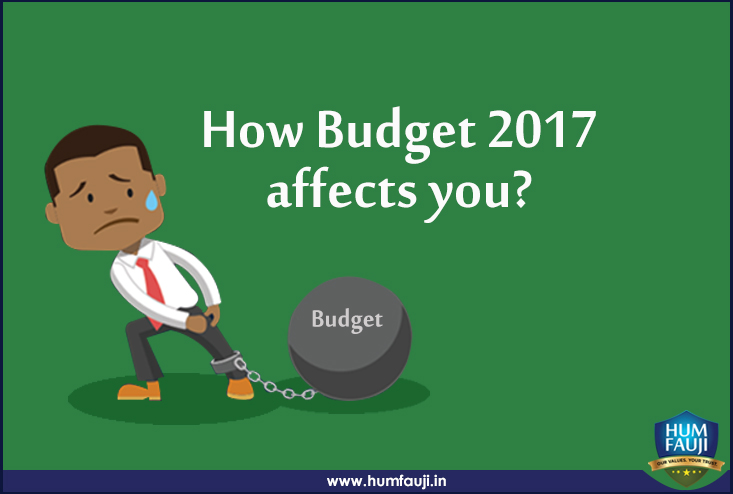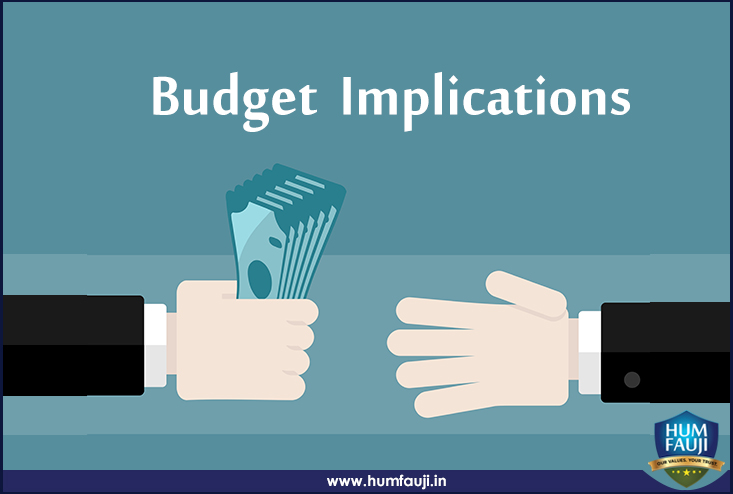Col Arun Kumar Karmakar is retiring next month and had approached Hum Fauji Initiatives to take him ahead with his retirement planning, tax planning and investment of his retirement portfolio to his and his family’s best advantage.
The goal-based retirement plan made for him by Hum Fauji was under the process of discussion with his Relationship Manager (RM) and Asst Manager (AM) in the company when news came about the amendment done in budget proposals wherein Long Term Capital Gains (LTCG) status and indexation provisions of debt mutual funds were removed. He got confused about whether the debt MFs included in the plan made for him by Hum Fauji still remained relevant to him.
The conversation between him (AKK) and his RM took place as follows:-
AKK: With no LTCG benefits available, I think the debt mutual funds should be removed from the portfolio prepared by you and we should stock up on bank FDs, corporate FDs, Senior Citizens Savings Scheme (SCSS), Govt Bonds etc recommended by you.
RM: Sir, LTCG and indexation benefits are just one of the benefits offered by Debt MFs. There are so many other benefits that debt MFs give you over traditional investment avenues that we recommend you to continue with them in your retirement plan.
AKK: Tax saved is money earned. If I don’t save tax, then why should I invest in them.
RM: Sure Sir, we should surely try to save tax wherever possible and if you see the plan made by us, we have already done that at every step. But any plan based entirely on tax concessions is bound to trouble later since tax laws can be changed any time by the Govt, as in the current instance.
AKK: All this is very fine but I fail to see how debt MFs give me any edge over other avenues now.
RM: Sure Sir, I would like to tabulate it for you so that the two types of instruments can be compared
| Aspect | Bank FDs | Debt MFs |
| Safety | Very safe. | As safe as you want – wide choice and flexibility available. For max safety, take MFs investing only in bank FDs and Govt Bonds and still get better returns and benefits |
| Mark to Market (M2M) | No such facility available which actually would disadvantage as rate go down from here | Huge advantage. Current interest rates are at their peak. As they go down, long term debt MFs will gain in value while FDs will give you lower interest rates |
| Systematic Withdrawal Plan (SWP) | Anything earned from bank FDs is fully taxed | This is the best way to take additional income or pension since it can save up to 80% of the tax that you would comparatively pay on your pension, bank interest, SCSS interest and other similar instruments. |
| TDS | Tax Deducted at Source irrespective of FD being cumulative or non-cumulative | No concept of TDS for resident Indians |
| When taxed | Taxed every year on interest earned – actual or notional – irrespective of the tenure of the FD | Taxation only when redeem MFs. Big advantage if your taxation is going to be lower later, say after retirement or getting disability pension. Could also invest in minor children’s name now or if major children not likely to earn or be in a high tax bracket for a long time to save tax. |
| Tax Saving on gains | No set off of FDs’ tax on interest against any other loss | Short Term Capital Gains (STCG) of MFs can be set-off against short-term capital losses (STCL) of other instruments like equity, equity MFs and others. |
| Tenure | Have to decide beforehand and would face issues of penalty if money requirement occurs before or after FD maturity | No tenure laid down – absolutely flexible. Withdraw when you wish or may not withdraw the whole life even though invested for a different tenure in mind initially |
| Liquidity | Any time but penalty imposed on premature withdrawal | Full or partial liquidity within 1-4 working days. Exit load may or may not be there depending on the fund chosen by you. Typically, no exit load beyond One year |
| Choice | No choice – a FD is a FD and nothing else | Huge menu available. Choose as per your requirement and returns desired |
| Anything else | Bank FDs much older product, hence occupy Indians’ mind space. Best only for creating Emergency Fund | Latest products with huge innovations; active investing as per interest rate scenario; and flexibility of investing and withdrawal |
Sir, I hope I’ve been able to convey to you that, with the recent tax change, only one aspect of debt MFs has changed while all other advantages remain.
AKK: OK, convinced about the bank FDs Vs debt MFs comparison. But aren’t SCSS and corporate FDs now better than debt MFs after this taxation thing?
RM: Sir, corporate FDs surely give you better interest than bank FDs. You should have them in your portfolio for diversification and better returns. The corporate FDs suggested by us are top-of-the-class combination of safety and returns. But SCSS, even though giving a good 8% interest and have high safety, suffer from four main disadvantages:-
- Interest is fully taxable. So, you will actually get 5.6% in hand after tax.
- Even if you do not want the interest, it is compulsorily given to you and you have no choice.
- Since you have already taken out the interest, there is no compounding in SCSS which is a big disadvantage since you anyway do not need the monthly additional income that is compulsorily given to you.
- Bank or Post Office clerk will tell you to put this quarterly interest of SCSS in a Recurring Deposit (RD) and you will get ‘9-12% total interest’. This is a wrong calculation. You get an average of the interest rate of SCSS and RD and get taxed twice on the interest at SCSS as also RD.
So, we recommend only a limited amount to be invested in SCSS.
AKK: OK. Let us not delay the discussions any further and go ahead with the plan as prepared by you!
RM: Sure Sir.
Also Read: Will You Miss Out This Tremendous Safe Investment Opportunity?













